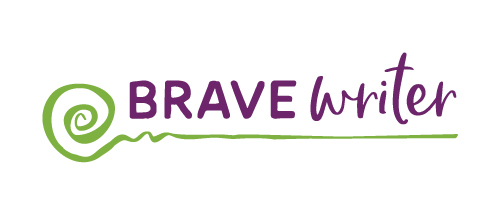Welcome to "Tea with Julie," a weekly missive by me, Julie Bogart. My wish is to give you food for thought over a cup of tea to enhance your life as an educator, parent, and awesome adult. Glad you're here. Pinkies up!
P.S. Was this email forwarded to you? Add yourself to the list and get your own!
Cincinnati, July 18, 2020
Hi Friend,
Sometimes we can stealthily create motivation simply by how we react to our children's writing. One trick is, though, to not exert pressure when attempting to compliment or encourage.
Evaluate these two comments:
“This paragraph has so much potential!”
“I can’t wait to find out what happens next!”
If when you read a paragraph your child has written and you see its flaws, but want to convey that you appreciate the content, you may be tempted to say:
“This could be a great paragraph if…” or “I see a lot of potential here” or “Except for the mistakes, your paragraph is really getting there.”
Each of these statements focuses on the paragraph as something to evaluate, not as something to be read and understood.
I’ve said versions of these at times to my kids. They immediately fired back, “Wait, don’t you like it? Why are you focused on what I didn’t do?”
Which made me defensive: “Hey I gave you a compliment! I think it’s a great paragraph! It’s just that it will be even better when you fix x, y, and z.”
What my kids heard, however, was pressure. They weren’t worthy of my full admiration until they had presented me with error-free copy. They were deflated! It was as if I was only interested in the paragraph to demonstrate a mastery of the mechanics or expanded detail. My focus was on the potential of the piece, not the actual writing.
“I can’t wait to find out what happens next!”
This second example shows true interest in the purpose of the paragraph: to engage me, the reader.
What my kids took away: Mom read my paragraph, and wants to know where the story or report is going because it was compelling.
This kind of response to a person’s writing is often experienced as “motivating.” It validates what has been offered while inviting more. It gives the writer permission to add to the existing piece rather than requiring the mess to be cleaned up before deserving a compliment.
When we look at writing, pressure is the key reason so many kids lose heart.
- They feel pressure to write more than they offered.
- They feel pressure to not misspell any word they’ve ever once spelled correctly for fear they will be reminded that they KNOW how to spell it so why the mistake?
- They feel pressure to move the story along in a clear linear pattern, to never ramble, to use proper punctuation, to write legibly.
They worry that unless they coordinate all these skills, the meaning, heart, and thought they've put into their writing will not be “heard.” Until all the pieces are lined up, they don’t get to hear: “That story is so good, I want to find out what happens next.” Motivation comes from the desire to get a positive reaction again.
Avoid the “back-handed compliment"
If your child puts out two or three sentences that are misspelled and poorly punctuated, sincere parents will believe they are providing motivation by extolling the child’s capabilities like this:
“You have such good stories to tell! I know you could make them even better if you just checked your spelling first. You have the best handwriting when you take your time. I see great potential here for you!”
This “back-handed compliment” also feels like pressure to the child—to do better.
Yet even poorly spelled and punctuated writing can be read for its entertainment value.
Instead, you might say:
“I was reading along and I became amazed at what you know about trebuchets! I didn’t quite catch this word (pointing to it)—can you tell me what it was in your head? Oh! ‘Launcher.’ I get it now! So you are saying that the trebuchet is a kind of launcher. What great language! What would you launch if you had one?”
If your child experiences your curiosity about a misspelled word as your desire to really understand the meaning of the piece (not as a correction for not living up to his potential), he is more likely to take your comments as motivation to care about his spelling.
This is true in every arena! The goal of teaching is not to remind our kids of how much they could do well if they only just ___ (fill in the blank).
Be a mirror
The goal is to be a mirror to our children who are taking learning risks—to show them all the ways we value their risk-taking pluckiness!
Motivation is internal—it’s a felt need to produce/risk for personal satisfaction. We create a context for motivation when we are amazed by who our kids are today, not who they could be tomorrow.
Warmly,

P.S. Catch up on all the “Tea with Julie” emails here!
Julie Bogart
© 2020 Brave Writer LLC™
help@bravewriter.com

.